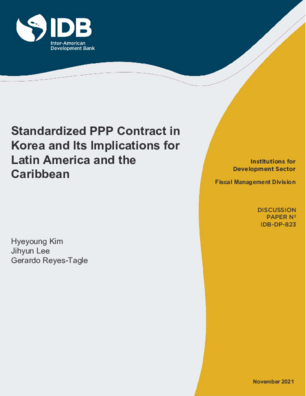Standardized PPP Contract in Korea and its Implications for Latin America and the Caribbean
Date
Oct 2021
This note describes the Korean experience with the standardization of private-public partnership (PPP) contracts in the context of a civil law system and the lessons of this experience for countries in the Latin American and Caribbean region Standardization strengthens the legal and institutional safeguards of long-term PPP contracts in civil law systems. To increase the reliability of PPP contracts in this setting, a standardized PPP contract was prepared by the statutory PPP agency under the approval of the Ministry of Economy and Finance, an influential ministry within the government. The standardized PPP contract has been of great utility for both the competent authorities and private partners. It has streamlined negotiations by giving the private partner greater confidence that the contractual assignment of risks regarding land acquisition, construction completion, operation and demand, and termination would be legally recognized and enforced. A survey of market and government PPP actors in Korea and the Latin American and Caribbean region demonstrated similarities between the two that make Korean lessons particularly relevant. For example, most countries in the region have adopted the civil law system and developed similar payment types for PPP and risk allocation principles.




